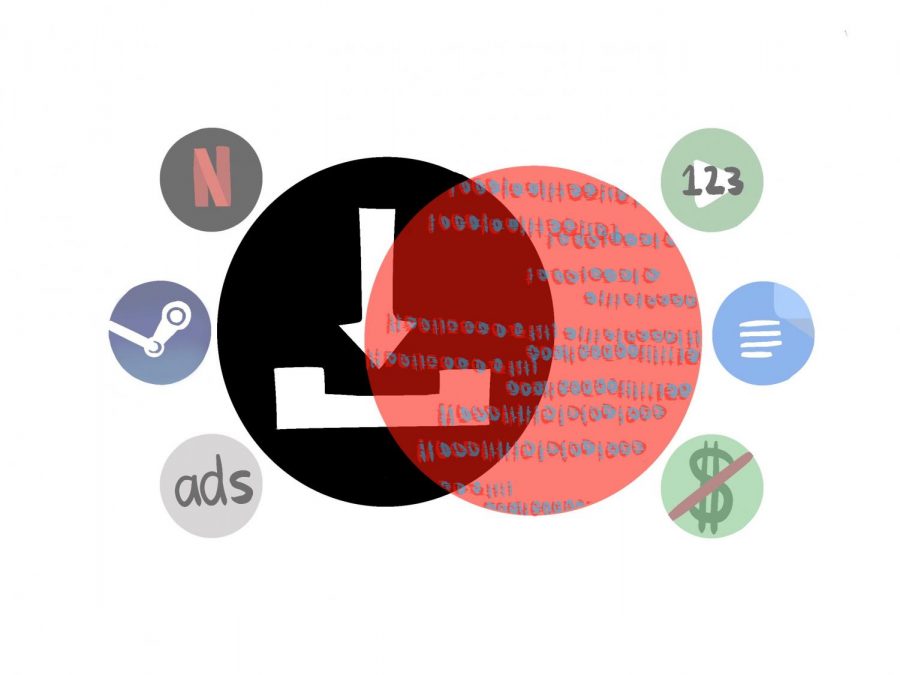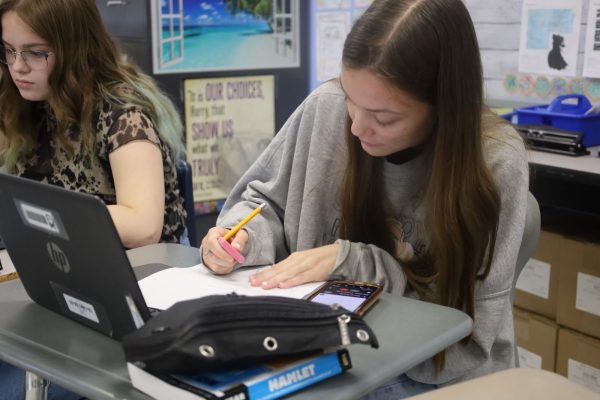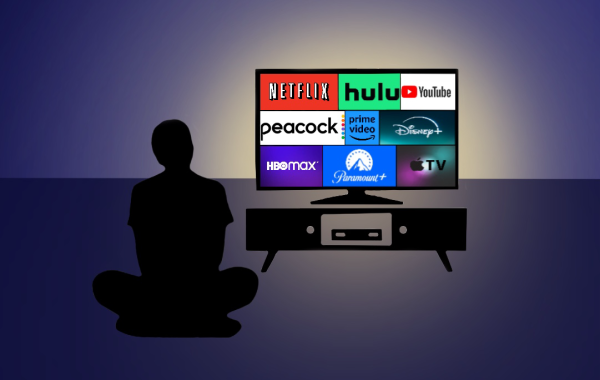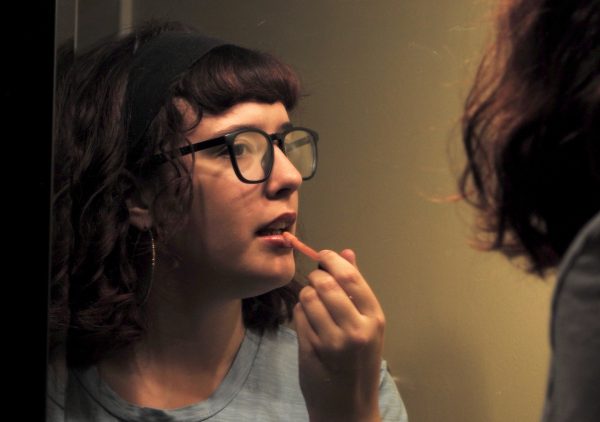Heading downstream
Students turn to pirating to avoid subscription requirements.
photo by Alexis Madlang
Students look to illegal streaming websites and game emulators to get around high costs and poor selection on streaming services. These websites are quick to feature the latest film, which students can rely on.
A trip to the mall to see the latest blockbuster film was a tradition for many Americans. The movie theater used to be a place of solace for parents looking to entertain their impatient toddlers and a popular date location for teens strategizing how to initiate their first kiss. While movie theater attendance has been low recently, these customs have held up amidst the rise of streaming platforms such as Netflix and Disney+.
However, students are accessing their favorite movies and television shows, along with video games in another way: pirating. Pirating, or the illegal downloading of copyrighted content, has been around since 1999, with the creation of “Napster,” a free music service.
Yet, with COVID, and high subscription prices for Netflix, Hulu and Disney+, students are turning to online websites for entertainment more and more.
One of the most popular apps, Netflix, experiences much backlash from critics and dissatisfaction among subscribers. Users complain on social media about their favorite show being canceled after a few seasons, as well as gradually increasing prices for a weak selection. Refinery29 reports that as of Aug. 2020, Netflix has cancelled popular, successful shows Atypical, The Society and Patriot Act, inciting a wave of negative feedback.
Senior Rebekah Harvey echoes this sentiment, favoring pirate websites that offer free downloads for popular movies and shows. Her family subscribes to Netflix, but they find the shows and movies it offers disappointing.
“Netflix is alright, but I’d say like 90% of the shows and movies on there are garbage,” Harvey said. “ It’s a huge money sink and not worth it at all.”
Illegal sites like 123movies and Putlocker charge zero fees, attracting students without jobs or a source of income outside of their parents. Students are also fans of their efficiency; it is easier to find what they want without having to pay for multiple platforms, with a short download time.
The music pirating industry is just as successful as videos, mainly because it provides all the benefits music streaming giants such as Spotify and Apple Music have. Spotify and Apple Music require users to listen to ads or pay subscription fees. Spotify’s premium option allows for offline downloading, at a charge of $10 per month. Instead, students turn to other internet resources for their favorite songs. Senior Kevin Cosio has downloaded songs for free before on popular web tool YoutubetoMp3, as well as a “Russian version of Facebook.”
Illegal downloading is common knowledge, and extremely widespread. Despite this, some users are unaware or ignorant of the fact that by utilizing illegal sites, they put their software and technology at risk. One can think they are downloading certain software onto their computer, while really granting access to viruses or malware, as cybersecurity blog Kaspersky warns. Cosio recommends “common sense,” with Harvey advising the use of strong ad blockers to prevent such events from occurring.
Reddit tutorials are also available with a simple search, and many students are pointed towards secret, reliable sites through family or friends. Social media users also share tips, garnering millions of views and prompting more pirating. Senior Logan Irving, after watching an instructional TikTok, uses Google Docs to watch movies such as Divergent and The Hunger Games, which are not offered on any of the services his family is subscribed to.
The ethics behind the practice is a source of debate. The moral argument ventures into grey area when it comes to content made by smaller studios and labels. Anime is easily accessible on numerous pirate websites, such as Kissanime and GogoAnime, as opposed to sites with exclusive paid content or membership requirements like Crunchyroll and Funimation. Senior Alexander Valentin is an occasional user of the free anime streaming sites, despite having family access to Netflix and Hulu.
“There are many animes that are not on these platforms which may be awkwardly old or just not popular enough to stay on them if they were there at all.” Valentin said.
He recognizes that there are flaws with this system, especially that these pirating sites give back very little to the original illustrators and artists. In the future, Valentin plans on subscribing to services that require purchases and membership to support his favorite creators.
In a similar vein, Cosio has downloaded older video games using free emulators and ROMs. Emulators, which substitute the need to purchase a gaming system or a device such as a Wii, and ROMs which hold game information on a downloadable file, can be found everywhere. He acknowledges that certain games are harder to attain legally, such as those found on a Gameboy Advance or older Nintendo gaming systems.
“For video games, the medium is a lot harder to preserve than film. If I wanted to play the original Super Mario Bros, I would have to buy a NES, a CR TV, and the game,” Cosio said.
Some believe that it is morally acceptable to pirate content from dominating corporations such as Universal Studios and Disney, as they continue to make millions in revenue.
Financially, however, illegal downloading of content causes economic consequences that affect more than just megacorporations. The rapid redistribution of movies and television shows found on pirating websites undermines the work of many, despite it being a benefit for consumers. Harvey admits she only has to wait weeks for certain movies, knowing that “someone will have it.”
The rapid output generated from illegal websites leads to reduced demand for legally-sourced content. This reduced demand in turn causes a decrease in supply, reducing the need for labor force.The Information Technology and Innovation Foundation in 2020 reports the loss of at least 200,000 jobs due to digital video piracy.
While acknowledging the darker aspects, on a personal level, students are faced with an increasing number of obstacles streaming services present. As they distance themselves from companies like Netflix and Hulu, pirating and other ways to keep up with their favorite content becomes more attractive.
“I am simply taking advantage of the opportunities that are available to me,” Irving said.
Your donation will support the student journalists of Hagerty High School. We are an ad-free publication, and your contribution helps us publish six issues of the BluePrint and cover our annual website hosting costs. Thank you so much!












